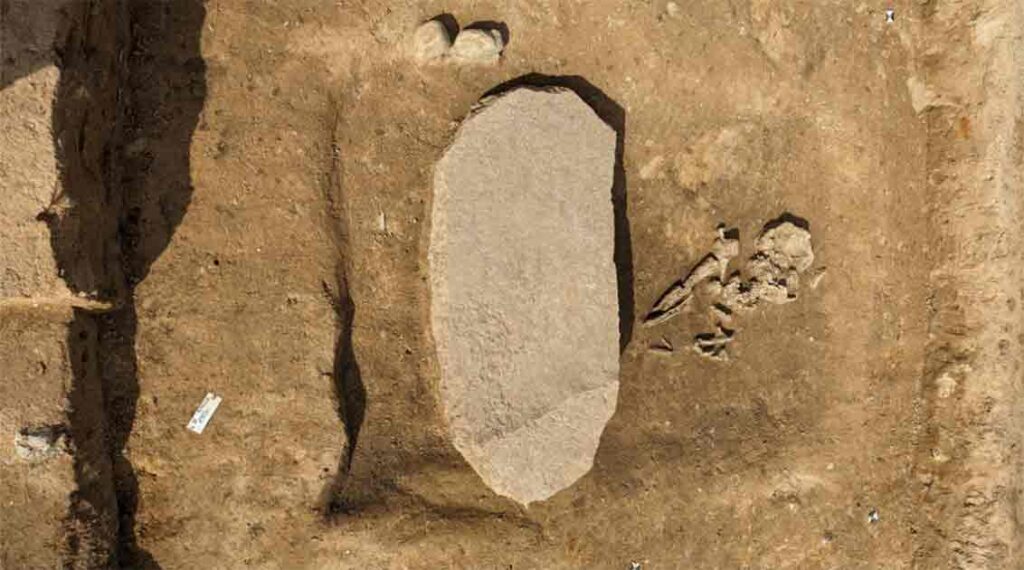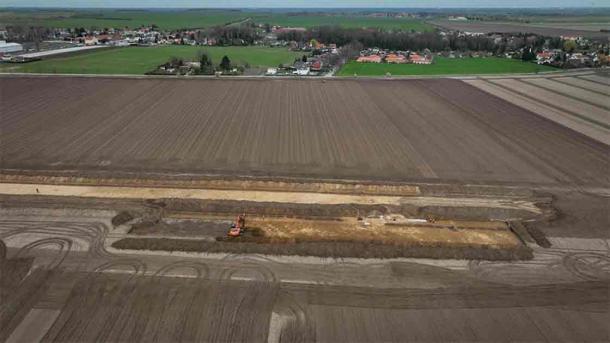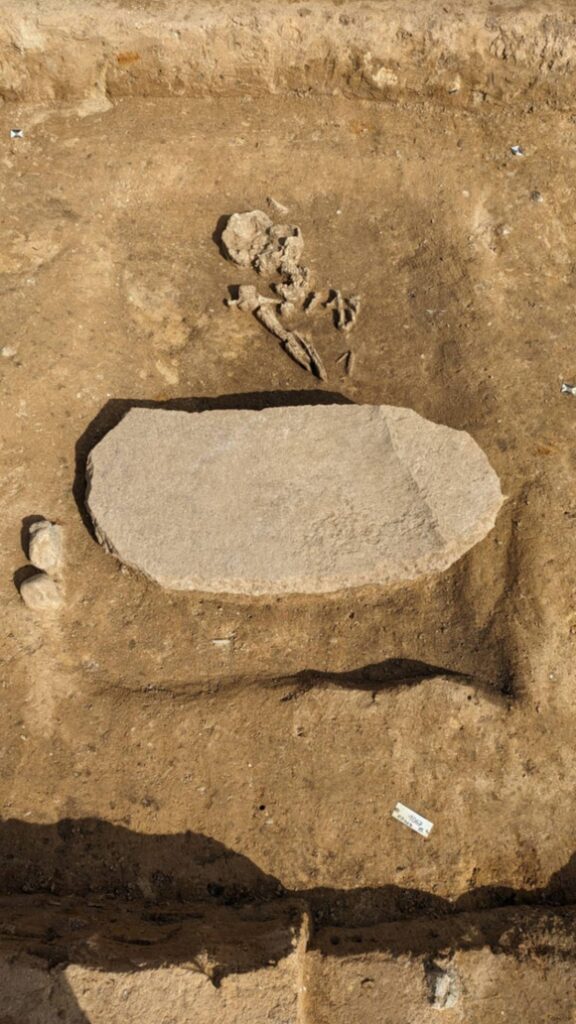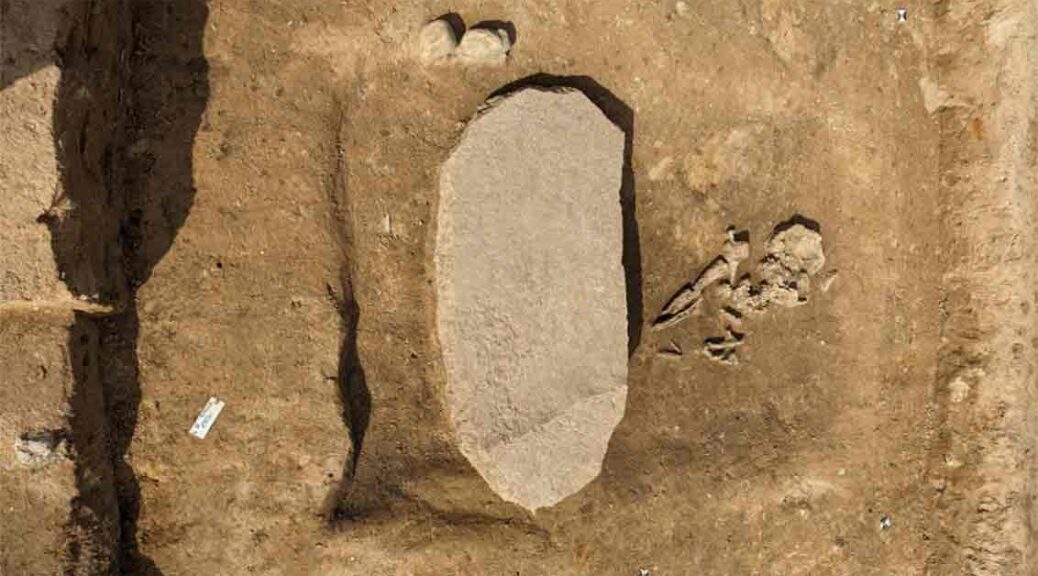‘4,200-year-old Zombie grave’ discovered in Germany

Archaeologists excavating in East Germany have found a 4,200-year-old grave near Oppin in Saxony-Anhalt containing the skeleton of a man believed to be at risk of becoming a “zombie”.
A supposed zombie grave, dating back thousands of years, shedding light on the superstitious practices of Bronze Age Europeans.
The deceased was pinned under a large stone to prevent him from rising from the grave to wreak havoc on the living. The slab was four inches (10 centimeters) thick, 20 inches (50 centimeters) wide, and roughly three feet (one meter) long. Its intended function was to stop the deceased from excavating his own grave, as zombies—or, more accurately, revenants—have been known to do.
The tomb of the suspected zombie was uncovered during excavations that have been launched along the route of a planned long-distance, underground power line known as the SuedOstLink, which will transmit electricity from Saxony-Anhalt into Bavaria.
“It is an adult man, about 40 to 60 years old. He is lying on his left side with his legs bent and facing east,” excavation manager Uwe Moos said at the excavation site. “A large stone, about one metre long, 50 centimeters wide and ten centimeters high, lies across his lower legs.”

According to Moos, the deceased may have been unloved or suffered from a serious illness. “The heavy stone was intended to prevent him from coming back,” said Moos. The man may have come from the Bell Beaker culture – making it the first such revenant grave from this period in central Germany.
Although stories about vampires, zombies, and other undead ghouls were particularly prevalent in Europe during the Middle Ages, little is known about how deeply the idea of the revenant permeated Bronze Age mythology.
The fact that a zombie burial was found in eastern Germany indicates that the legends were known in the area as early as the third millennium BC, indicating that they may have originated even earlier in prehistory.
“We know that even in the Stone Age, people were afraid of revenants,” said archaeologist and Project Manager Susanne Friederich, in an interview with the German public broadcasting outlet MDR. “Back then, people believed that dead people sometimes tried to free themselves from their graves.”
A common theme in many ancient mythologies, particularly those of the Celtic and Norse people, was the revenant or zombie. Ancient Greeks also had a genuine fear of revenants, as evidenced by their custom of weighing down entombed bodies.
The Romans believed in revenants, and putting stone blocks in the mouths of the dead prevented them from rising and devouring the flesh of the living, according to a wealth of literature.

To stop the evil dead from rising, one way was to lay a large stone across the body. However, it wasn’t the only one.
“There are graves where the corpse even lies on its stomach,” Friederich said. “If it lies on its stomach, it burrows deeper and deeper instead of rising to the surface … there are also dead bodies lying on their stomachs who were also pierced with a lance, so they were practically fixed in the ground.”
The excavations are taking place in the run-up to the grid expansion of the direct current line SuedOstLink. The approximately 150-kilometer-long section through Saxony-Anhalt will be archaeologically investigated until 2025. The skeletal remains have been recovered from the Neolithic grave and are being transferred to a laboratory in Halle for further study.
